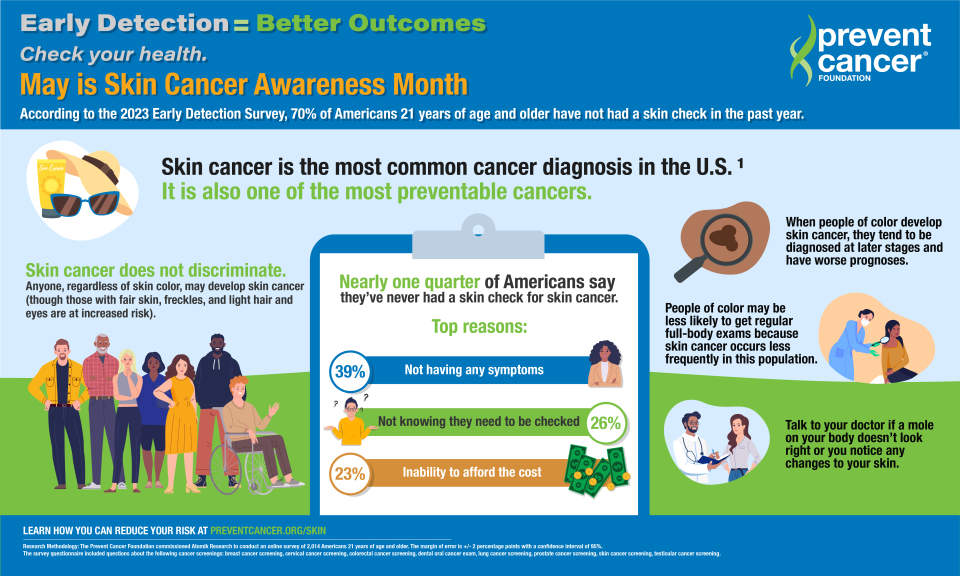If that suspicious spot is skin cancer, delay is not your ally | George Korda
“This isn’t a run-of-the-mill tumor,” the surgeon said to me.
Tumor?
“I don’t think radiation will be necessary,” he added.
Radiation?
Something I often tell myself is, “Delay is not your ally.” But with respect to what the spot on my skin the doctor was talking about, I’d delayed having it examined – and it hadn’t been my ally.

Dr. Robert M. Gathings, a fellowship-trained specialist in Mohs micrographic and facial reconstructive surgery, had certainly concentrated my attention. What I’d expected was only a minor procedure to remove a squamous cell skin cancer from the bridge of my nose. Words like “tumor” and “radiation” were new and somewhat chilling.
The spot in question had been there for a while, but for a long time was small: I thought it was a callus caused by how my continuous positive air pressure (CPAP) machine mask sits on the bridge of my nose. I put light amounts of petroleum jelly on the “callus” and covered it with a piece of cotton to protect it from my CPAP mask, and expected it to disappear. I wondered if I ought to have the spot examined, but it didn’t seem worth the trouble.
Squamous cell carcinoma
But it seemed worth the trouble when the spot didn’t go away and actually got bigger and started to sting when touched. The biopsy diagnosis: a squamous cell carcinoma. That, I knew, was more significant than a callus, but at least not a melanoma. A Mohs surgery was scheduled. Mohs is a procedure in which layers of tissue are removed and microscopically examined to ensure all cancer is gone.
After Dr. Gathings removed the first skin section, there was a 45-minute wait while it was analyzed. When he returned, he said that what he’d removed “isn’t a run-of-the-mill tumor” and was “aggressive.” He needed to remove more tissue.
Paying the price for growing up at the beach
Afterward, as I lay waiting for the new results, I reflected that I might be paying a price for the years I spent surfing, playing and lounging at the beach while growing up in Florida. As kids and teenagers, the only sun protection factor about which my friends and I knew was being in the shade.
The American Cancer Society says, “It’s thought that about 2,000 people in the U.S. die each year from these (basal cell and squamous cell) cancers,” but no one is exactly sure of the total because they aren’t reported and tracked by cancer registries.
Basal and squamous-cell cancer deaths are far fewer on a numerical basis than such much-deadlier cancers as lung and bronchial (127,000 per year), colon (52,000), or breast (42,500). However, the percentages are of little concern to those who number among squamous cell’s victims. And a principal reason one becomes a victim? Delay. The death rate increases when people wait too long for treatment, says the ACS.
As I waited for Dr. Gathings to return, I wondered why I’d dithered about dealing with the issue. That’s not like me. I frequently tell physicians that I want to be sure they never say, “I wish you’d come to me sooner.” I could figure out all kinds of weak justifications, but in the end, none of them mattered.
At first, given the size of the area in question, he said a skin graft might be necessary to close the surgical site. However, before doing the incision site repair, he explained how he’d assessed that he could close the site without a graft, which was welcome news. He was very pleased with the outcome, which means I’m very pleased with the outcome.
So many stitches
At this moment I have more than 30 stitches from the tip of my nose to the area between my eyes, and more branching off to the left and right nearly to my tear ducts: it looks like make-up for a 1930s Frankenstein movie. The deep purple bruising and accompanying swelling around my eyes that pretty much closed one of them for a couple of days are subsiding.
There’ll be no dereliction in the future. If I see something, I’ll say something.
So here’s a suggestion: if you think there’s something on you that needs to be checked, get it checked. Delay is not your ally.
George Korda is a political analyst for WATE-TV, hosts “State Your Case” from noon to 2 p.m. Sundays on WOKI-FM Newstalk 98.7 and is president of Korda Communications, a public relations and communications consulting firm.
This article originally appeared on Knoxville News Sentinel: George Korda: If that spot is skin cancer, delay is not your ally

